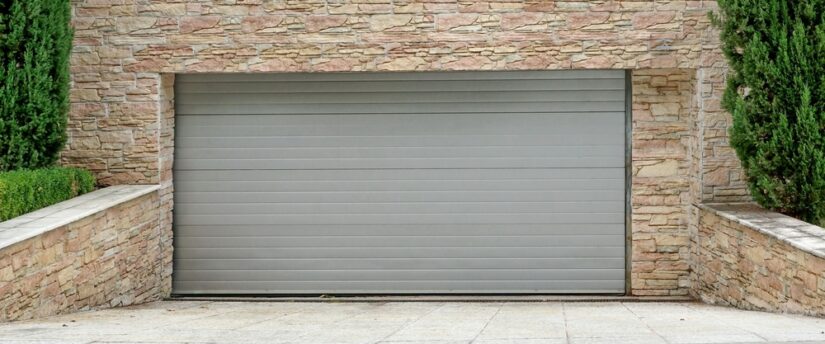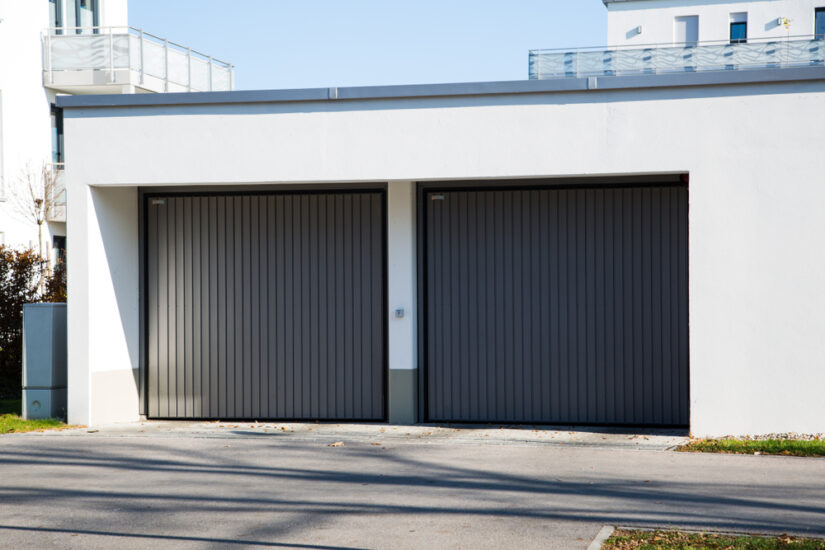January 17, 2025

Selecting the right commercial roll-up door can significantly affect a business’s functionality and security. Among the various types available, each serves unique needs ranging from durability to insulation efficiency. Knowing these differences helps businesses make informed choices, ensuring their facilities are both secure and operationally efficient.
Understanding Roll-Up Doors
Roll-up doors offer a space-saving design, typically winding around a drum, made from various materials to ensure robustness. They are designed to withstand frequent use and provide significant security and durability in commercial settings.
Mechanism of Operation
Roll-up doors operate by rolling up into a coil above the doorway, a mechanism that saves space. Consisting of interconnected panels or slats, the doors wind around a central drum when opened. This efficient design allows for easy manual operation or automation, enhancing convenience. The choice between a manual chain hoist or an electric motor provides customization based on the needs of a business.
Materials and Durability
These doors often use materials like steel, aluminum, and sometimes vinyl. Steel roll-up doors offer unmatched durability and security, which are excellent for high-traffic or storage facilities. Aluminum provides corrosion resistance, which is appealing for car washes and coastal locations. Vinyl covers or cladding options offer insulation and soundproofing, ideal for temperature-controlled environments.
Different Types of Commercial Roll-Up Doors
Many types of roll-up doors offer varied features suitable for different commercial needs. These doors enhance security, fire resistance, and energy efficiency while also catering to smaller service areas.
Service Doors
Service doors, a common type, are known for their durability and versatility. They are typically used in spaces like loading docks, warehouses, and garages. Constructed from galvanized steel or aluminum, they ensure longevity and withstand harsh environments.
These doors can be manually or electrically operated, offering flexibility for various business operations. Different slat designs and finishes are often available, allowing customization based on aesthetic or functional needs. Noise reduction and thermal efficiency features make them suitable for industries requiring specific environmental control.
Counter Doors
Counter doors, also called counter shutters, are perfect for securing openings in smaller spaces such as cafeterias, pharmacies, and retail areas. They are compact yet robust, providing a secure barrier without compromising space.
These doors are often made of stainless steel, aluminum, or steel, ensuring durability. Customization options include countertops, which integrate smoothly into the surrounding architecture. Ease of maintenance and operation are notable benefits, making them ideal for high-traffic areas.
Fire-Rated Doors
Fire-rated doors are crucial for buildings needing enhanced fire protection. Designed to impede the spread of fire, these doors can withstand high temperatures for extended periods. They are often required in schools, hospitals, and industrial facilities.
These doors come with varying fire ratings, often measured in hours, to meet specific safety regulations. Integration with fire alarms and smoke detection systems ensures automatic closure during emergencies, enhancing safety. Regular inspections and maintenance are essential to ensure optimal functionality.

Security Grilles
Security grilles provide a robust barrier without sacrificing visibility. They are commonly used in shopping malls, airports, and storefronts. Designed with a series of interlocking slats, they roll up compactly, optimizing space when not in use.
These grilles are available in various patterns and materials such as aluminum and steel. Their configuration allows airflow and partial visibility even when secured, making them ideal for spaces that require both security and interaction with the public. Manual and motorized options cater to different operational needs.
Insulated Roll Up Doors
Insulated roll up doors are essential for spaces requiring temperature control and energy efficiency. They are ideal for environments such as cold storage facilities, food processing units, and automotive service centers.
These doors feature multilayer construction, often incorporating foam or other insulating materials, to reduce heat transfer. This design helps maintain interior climate, reducing energy costs. Sound reduction and increased durability are additional benefits, making them a practical choice for noise-sensitive areas.
Choosing the Right Commercial Roll Up Door
Selecting the right commercial roll up door requires consideration of various factors such as durability, ease of installation, and maintenance requirements. Matching the door type to the specific needs of a business is essential to ensure functionality and cost-effectiveness.
Factors to Consider
When selecting a commercial roll up door, several factors play a crucial role. Durability is often prioritized, with materials like steel providing longevity, especially in harsher environments. Security features should also be assessed, ensuring the door offers the necessary protection against unauthorized access.
The installation process is another key factor. Quick install systems can save time and operational disruptions for businesses. Consideration should also be given to maintenance requirements. Doors requiring fewer service calls and simple upkeep can reduce long-term costs. Lastly, energy efficiency can be significant for climate-controlled settings, where insulated doors offer the benefit of minimizing energy loss.
Matching Door Type to Business Needs
Different businesses have varied demands when it comes to rolling up doors. Warehouse and storage facilities may benefit from high-performance doors that offer speed and security.
In food service or pharmaceutical industries, maintaining controlled environments is critical. Insulated doors provide the necessary thermal protection. For businesses operating in harsh climates, corrosion-resistant steel doors can offer a robust and long-lasting option. By aligning the type of door with specific business needs, organizations can optimize efficiency and ensure their investments are protected.
Regular testing of safety features is vital. This includes ensuring that sensors are functional and the door stops or reverses as intended. Compliance not only ensures safety but can also mitigate liability in an accident.